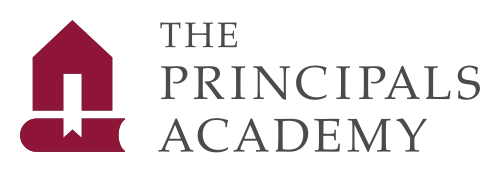School improvement is at the core of any comprehensive plan for 2022. The WCED guides you with the SIP that you construct and compile from various personal evaluation plans, identified areas of school development and responses to systemic analysis and NSC results. But, an often overlooked tool is an annual planning conversation with each teacher. Not all principals are wired for open, direct and sometimes confrontational courageous conversations, but a well-planned, purposeful interaction based on reflection, expectation and team emphasis for 2022, will give your school a collective boost.
In discussing this with the principals I serve, it’s clear that most prefer more informal, on-the-go chats with teachers which are both personal and professional, and which include the usual themes of recognition, gratitude, family news, upcoming events, and general encouragement. The more you do of this the better, but a more structured, inclusive, core business conversation about the available data, plans, targets, and updated responsibilities is an effective way of driving and aligning improvement. I realise that it is an extremely busy time of the year for principals. You could save time by seeing two or three teachers together according to appropriate subject and grade groupings, but that one-on-one is the ideal.
In preparing to write this letter, I discuss what I’m thinking with the four or five principals I coach each week. It’s part of our conversation. We value each other’s contextual insight and experience, and we deepen our understanding and our mutual respect. Your structured conversation with each team member and teacher should underline the same professionalism. When we sit down to chat as principal and teacher, we both learn. My Head-Coach schedules individual meetings with mentors like me on a regular basis. It’s what’s expected of learning organizations.
Start off the conversation, if appropriate, with general thanks and very particular praise for the teacher’s contribution. This needs preparation to be sincere and effective. Remember each one’s family details. With most of your teachers the conversations will be easy. I guarantee you, even the world’s best teachers and principals are always aiming to improve.
Always give your teachers a chance to have their say. Their insights are valuable in that you get to understand your school from another perspective and to adapt your communication strategy accordingly. Ask about their most stressful tasks. Make a point of ascertaining any professional development requests.
This is your chance to provoke change, to drive it with specifics like the depth of teacher collaboration you are trying to introduce as a school wide strength. You are not urging teachers in the staffroom; you are ‘signing’ an upgraded individual ‘contract’, personally developing your teachers, fulfilling your role as an instructional leader. Actually, too many heads regard this as the HoD’s responsibility. I can hear a principal say, ‘That’s not my job’. It’s 100% your responsibility to ensure that there’s a working structure in place. One you can vouch for. Make it happen, one interview at a time.
Ask the teacher to talk about involvement beyond the classroom and to share observations and highlights. If it’s obvious there is little involvement, discuss one or two possibilities and let the teacher choose. Follow up with the head of the chosen activity or administrative task. Add to the organogram. Being added to a committee is meaningless; being assigned a responsibility is progress.
When speaking to teachers who need to improve particular aspects of their work, address, if necessary, the elephant in the room – punctuality, irregular attendance, leaving a class unattended, insufficient evidence of written work or marking, insufficient support for subject head, etc. Get it said calmly and discuss steps and deadlines for immediate improvement.
If you are VERY lucky, you may have an outstanding deputy who buys in to what you are driving, sits in with you to observe and then undertakes the same with other teachers. It’s not a job you can delegate to someone not on the same page. There’s loads of joint commitment, loyalty and maturity required.
Remember, as principal, you build strong and successful relationships with your teachers by being respectful, caring, and supportive. And always sincere. When you trust teachers as professionals you are more likely to get buy-in, especially in trying new things.
Chatting to teachers about their year, their strengths and challenges, can be invaluable and motivating. It’s real leadership. Don’t shy away from it because it’s time-consuming or unpredictable. You’ll be glad you put in the extra time.
Till next time.
Paul (Coach/Mentor)
Principals Academy
Keeping in Touch in Tough Times, #32 of 2021, 23 October 2021
